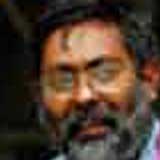In search of roots --- how Partition uprooted Bengalis
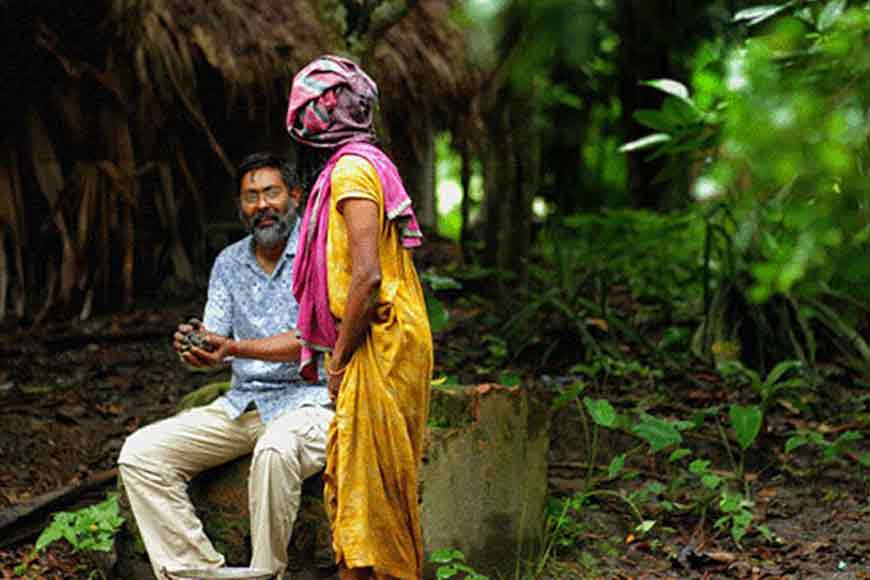
“In all of us there is a hunger, marrow-deep, to know our heritage to know who we are and where we have come from. Without this enriching knowledge, there is hollow yearning. No matter what our attainments in life, there is still a vacuum, emptiness and the most disquieting loneliness’’ - Alex Haley (Roots)
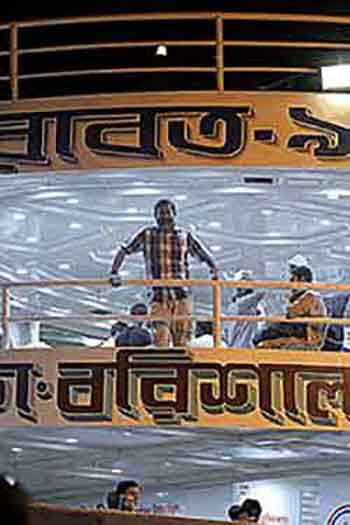 The yearning of returning to the roots has always been so strong, that I have often sat in my Kolkata home and dreamt of the lands of Barishal, a district of undivided Bengal. Senior family members often discussed our ancestral village of Beukhir. Being a student of film studies and later due to my professional commitments as a feature and ad film-maker, I have been to Bangladesh a number of times but somehow, I could never make it to Barishal. However, I heard several stories and anecdotes about Barishal’s geographical location, natural resources and how my ancestors were persecuted and had to desert their home and hearth during Partition.
The yearning of returning to the roots has always been so strong, that I have often sat in my Kolkata home and dreamt of the lands of Barishal, a district of undivided Bengal. Senior family members often discussed our ancestral village of Beukhir. Being a student of film studies and later due to my professional commitments as a feature and ad film-maker, I have been to Bangladesh a number of times but somehow, I could never make it to Barishal. However, I heard several stories and anecdotes about Barishal’s geographical location, natural resources and how my ancestors were persecuted and had to desert their home and hearth during Partition.
Stories and memories of those beautiful places like Keertan khola, Ariyal Kha, Sugandha, Kocha, Bishkhali or Poira, once so close to my family, yet today so far for my reach. People forced to relocate, could bring nothing more than memories to this part of Bengal, stories they passed on to the next generation about their ancestral land. Their dialect and rituals kept alive melodious sounds of daily life. In the same breath, they spoke of the barbaric brutality they were subjected to for no fault of theirs. Circumstances compelled them to accept that they were victims of a geo-political rift and lost the right to reclaim their motherland. They now need to carry visa and passport to visit the land that was once their home.
This deep anguish of Partition and the feeling of rootlessness was vividly depicted in films of Ritwik Ghatak. In Komal Gandhar, for instance, Anusuya (Supriya Chowdhury) suddenly stops at the railway line halt that ends abruptly close to the banks of the Padma river and tells Bhrigu (Abinash Bandopadhyay) remorsefully, ‘You know, the other side of the river is East Bengal and somewhere there lies my ancestral home.’
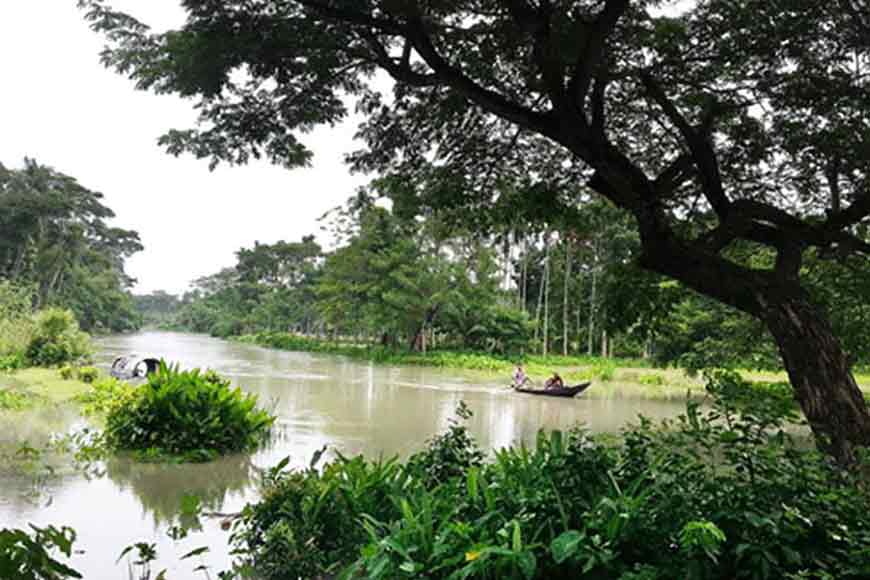
In July 2014, I went to Dhaka and contacted film director Russel Ahmed, upcoming photographer Ian and young musician Najmool Huda to accompany me to visit my ancestral home at Beukhir. We boarded the steamer from Sadar Ghat at Dhaka and reached Barishal at the crack of dawn. Hilsa was being stacked on the banks of Kirtankhola river, perhaps being packed and sent to Dhaka for export. We boarded a micro bus that sailed through a metal road, past a green corridor. Our destination was Jhalkathi. We joined Najmool as he broke into a song, Gangaburi Gangaburi shono/ Eto sundor namta tomar ke diyechhe balo…(Kafil Ahmed’s lyrics and composition).
Before Partition, Beukhir was a prosperous village dominated by Senguptas and Dasguptas. Festivals were held regularly in the 14 houses at Beukhir and the entire village participated in the merrymaking. Things changed after the communal riots of 1950. Out of sheer desperation and fear, Hindu families were forced to leave their ancestral homes and take shelter in a foreign land, to try and build their fragmented existence. My great grandfather Ushakanta Sengupta left his village with his wife and never returned to his motherland.
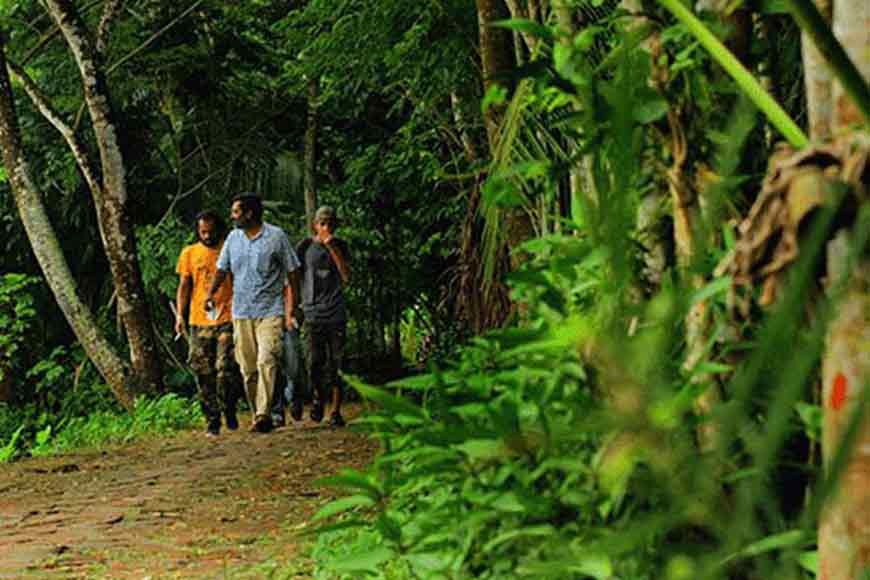
My co-travellers excitedly pointed at a river and said, ‘Oi dekha jai Dhansiri nodi doorey’ (you can see the Dhansiri river). I always had a wish to see the river from close quarters. On our way, we crossed Keertipasha, and came across a huge zamindar villa, almost dilapidated. A portion of the house had been renovated for running a primary school. The road gradually got narrower and after a certain point, we had to get down from the micro-bus and walk the rest. As I walked down, I could visualize the tales my grandmother, uncle, father and aunts often said. Everything seemed to come alive. It is difficult to specify the time when human settlement began in this land but from the local names, it is evident that fishermen were the first settlers. They were called Jhalo and their locality was known as Jhalopara. Many believe the name Jhalkathi was derived from Jhalopara. Poet Bijoy Gupta mentioned Jhalos in Manasha Mangal Kabya.
The tranquil village of Beukhir is full of greenery and its peaceful atmosphere is interrupted by the ripples of the river or the sound of boats splashing oars and passing by. Our journey was interrupted by a drizzle. We went to the local primary school and asked a lady there, ‘My grandfather Ushakanta Sengupta was a teacher in this school. Could you please help us locate his house?’ We were asked to go further down. By this time my excitement was palpable. Ion was constantly clicking photographs, to preserve our memories on celluloid.
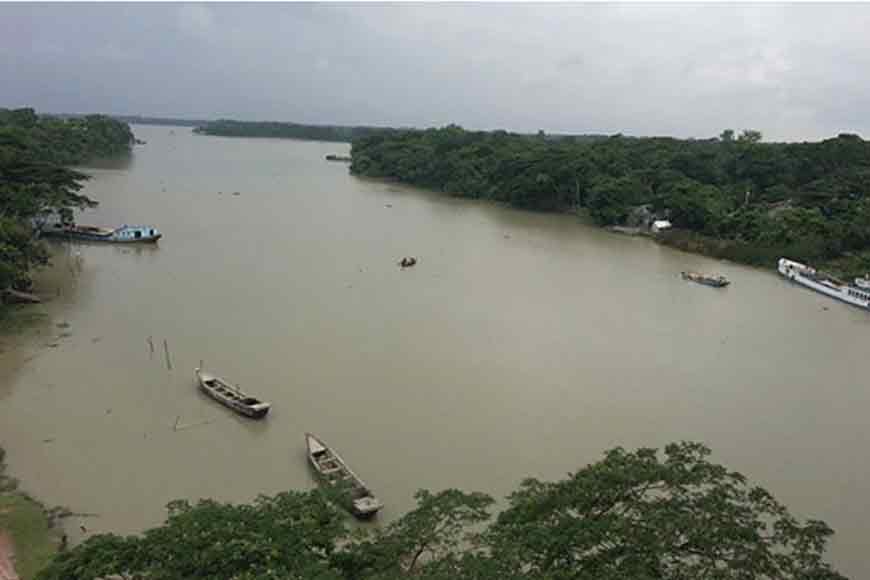
Finally, we reached our destination. A boy emerged from the house that once belonged to our family. The child’s father, Mithu Sengupta, came to meet us. I introduced myself and said, ‘My uncle Tapan Sengupta had visited Beukhir a couple of years ago. I am his sibling’s son.’ He recognized me and treated us royally. Then he pointed towards an earthen mound and a tiny entrance and said, ‘This is your house.’ My heart was racing as I went a few steps towards the mound. My grandfather had left this village and the country about 55- 60 years ago and the house was dismantled 25 years ago, though the staircase was still visible.
I sat on the stairs in a trance. How I wished my father was alive and only if I could bring him here. The next moment I felt this was perhaps better, because my father would have been traumatized to see the present state of the house. I was almost choking with emotions. I sat down and took some wet soil on my palms. When I returned to Kolkata, I handed that small earthen ball to my son Buno. He asked me ‘What is this?’ I said, ‘This is the soil I procured from our ancestral home.’ Yes, tucked in Beukhir village in Bangladesh’s Barishal district, lies my ancestral home, that was and will forever remain close to my heart --- my roots.






